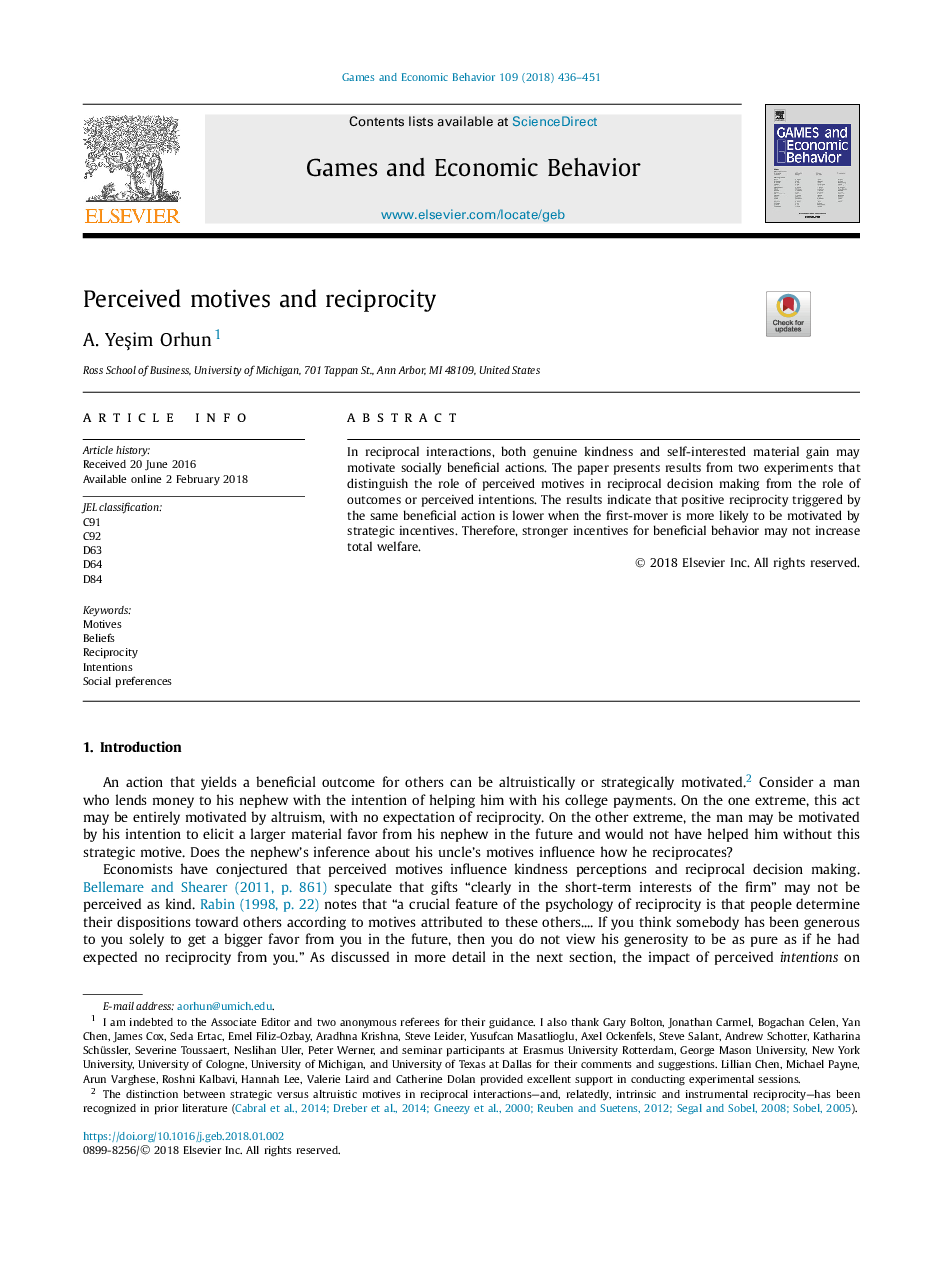| Article ID | Journal | Published Year | Pages | File Type |
|---|---|---|---|---|
| 7352952 | Games and Economic Behavior | 2018 | 16 Pages |
Abstract
In reciprocal interactions, both genuine kindness and self-interested material gain may motivate socially beneficial actions. The paper presents results from two experiments that distinguish the role of perceived motives in reciprocal decision making from the role of outcomes or perceived intentions. The results indicate that positive reciprocity triggered by the same beneficial action is lower when the first-mover is more likely to be motivated by strategic incentives. Therefore, stronger incentives for beneficial behavior may not increase total welfare.
Related Topics
Social Sciences and Humanities
Economics, Econometrics and Finance
Economics and Econometrics
Authors
A. YeÅim Orhun,
